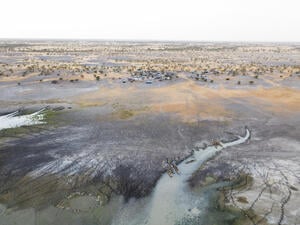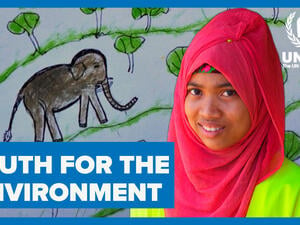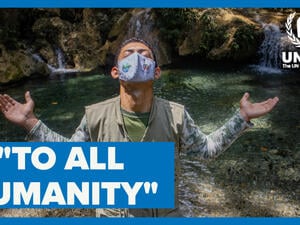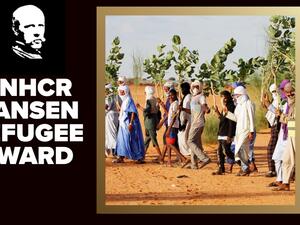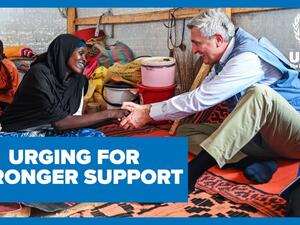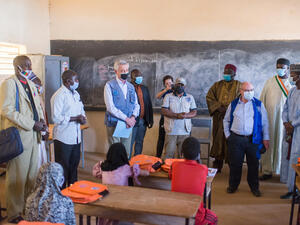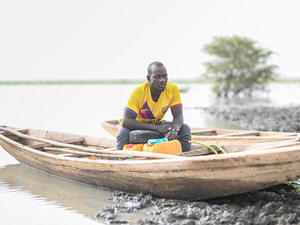Plastic shopping bags provide an income for Somali refugees in Ethiopia
Plastic shopping bags provide an income for Somali refugees in Ethiopia
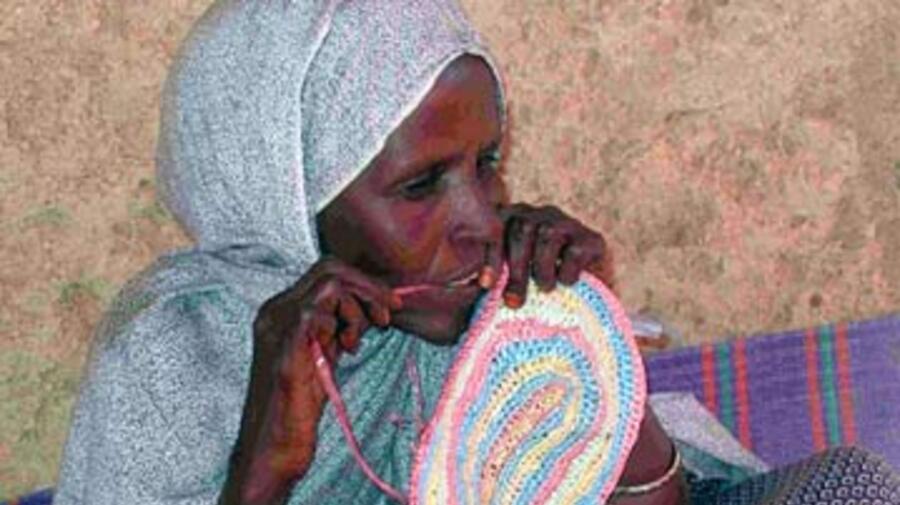
Somali refugee Zeineb Jamma Elmi cuts thread from a mat she is making from plastic bags.
KEBRIBEYAH, eastern Ethiopia, Mar 17 (UNHCR) - Sitting under a sunshade, Somali refugee Zeineb Jamma Elmi crochets a table cover while other refugee women weave mats, make mattresses and pillows. But these women are not using wool, or cotton or even straw to make these items. They are using something you would least expect: discarded plastic shopping bags.
By transforming what would normally be rubbish into useful household products, Zeineb is helping the environment by cleaning up the camp but more importantly for her, she is supplementing her meagre monthly ration.
"Making ends meet only with what we get from UNHCR by way of a monthly ration is really difficult. I used to travel several kilometres everyday to collect firewood to supplement my livelihood," says Zeineb who lives in Kebribeyah refugee camp in eastern Ethiopia along with thousands of other Somalis who cannot go home because of continuing lawlessness in their country. Zeinab previously sold the firewood she collected for 3-4 Ethiopian Birr (ETB), about 40 US cents. But now thanks to the plastic bag project supported by UNHCR and the non-governmental organisation ZOA-Netherlands, she earns four to five times as much without having to travel miles under the scorching sun.
"I now make ETB 450 (US$52) a month out of this work and am able to send some of my nine kids to school," says Zeineb who is 40 years old.
Zeineb is part of a group of sixty women, half of them refugees, half local, who spend six days a week at a ZOA Refugee Care workshop in Kebribeyah town making handicrafts out of what would otherwise be rubbish. From floor and doormats to school bags, baskets and caps, the women make all sorts of goods and sell them in the local market.
"The products are getting increasingly popular amongst the local community, a floor mat or a mattress, for example, sells for up to ETB 150 (US$17)," says Alemayehu Mulu, ZOA's income generation training officer in the region. He says because of the scheme's success they are planning to make it self-supporting in the future.
In addition to helping refugees earn an income, the project does a lot of good for the environment and for livestock, says Alemayehu. Plastic bags can take between 20 and 1,000 years to decompose and animals which ingest the bags can die from intestinal blockages. The scheme is helping reduce these problems. Since the project started at the end of 2005, there are already far fewer plastic bags littering the streets and surrounding areas. This is because ZOA has given many people, especially children, an incentive to get involved in collecting the bags.
"We buy one kilogramme of plastic shopping bags for ETB 3 ($0.30) from whoever comes up with them and we encourage everybody to collect as much of them as they can and sell them to us," says Alemayehu. In addition, he says, paying for the collection of the bags has helped divert people away from destroying the already depleted forest to collect firewood for the market.
For Zeineb, making handicrafts from plastic bags is much more meaningful than just earning a living, not least because it means she no longer needs to collect firewood. "Collecting firewood for me was like stealing other people's property. I fought with farm owners on a number of occasions."
By Kisut Gebre Egziabher in Kebribeyah, Ethiopia

